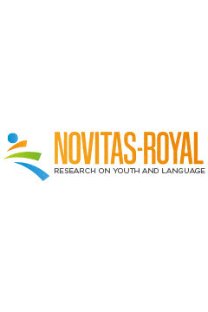Affiliating with Rap Music: Political Rap or Gangsta Rap?
Bu çalışmada dizgesel işlevsel dilbilimi (SFL) tanımladıktan sonra politik ve çete rap‟inde anlatılan kişilerarası anlamları tanımlamaya çalışacağım. dizgesel işlevsel dilbilim‟den Appraisal‟ı, 10 kişiden oluşan bir gruba 5 tane politik rep türü ve 5 tane çete rapi türü şarkıyı karşılaştırarak uygulayacağım. Appraisal, dilin değerlendirilmesi için tasarlanmış dilbilimsel analitik bir yapıdır. Son olarak Appraisal‟ı, hem politik rap türünün hem de çete rap türünün kendine özgü temalarını yüceltme yollarını tanımlamada ve ardından beyaz, şehirli ve orta sınıftan oluşan bir genç seyirci kitlesinin politik rep türünden ziyade çete repiyle ilgilendiğine dair hipotezi açıklamada kullanma amacındayım.
Following the linguistic theory of Systemic Functional Linguistics (SFL), for this paper, I will describe the interpersonal meanings expressed in the lyrics of political rap and gangsta rap. From SFL, I will apply Appraisal to a small corpus of 10 rap songs, comparing 5 political rap songs with 5 gangsta rap songs. Appraisal is a linguistic analytical framework designed to identify evaluation in language. Ultimately, I aim to apply Appraisal so as to describe the ways in which both political rap and gangsta rap actually 'promote' their respective themes, and in turn, hypothesise why it is that a white, suburban, middle-class youth audience seeks to affiliate with gangsta rap rather than political rap.
___
Best, S., & Kellner, D. (1999). Rap, black rage, and racial difference. Enculturation, 2(2). Retrieved December 30, 2007, from http://enculturation.gmu.edu/2_2/best-kellner.htmlBogdanov, V., Woodstra, C., Erlewine, S.T., & Bush, J. (2003). All music guide to hip-hop: The definitive guide to rap and hip hop. San Francisco: Blackbeat Books.
Keyes, C. (2002). Rap music and street consciousness. Illinois: University of Illinois Press. Halliday, M.A.K. (1978). Language as social semiotic: The social interpretation of language and meaning. London: Edward Arnold.
Krims, A. (2000). Rap music and the poetics of identity. Cambridge: Cambridge University Press.
Martin, J.R. (1992). English text: System and structure. Amsterdam: John Benjamins.
Martin, J.R. (2000). Beyond exchange: APPRAISAL systems in English. In S. Hunston, & G. Thompson (Eds.), Evaluation in text (pp. 142-176). Oxford: Oxford University Press.
Martin, J.R. (2003). Introduction. Text, 23(2), 171-181.
Martin, J.R., & Rose, D. (2003). Working with discourse: Meaning beyond the clause. London: Continuum.
Martin, J.R., & White P. R. R. (2005). The language of evaluation: Appraisal in English. New York: Palgrave MacMillan.
Mitchell, T. (2006, April 1). The new corroboree. The Age: A2, p. 17.
Pennycook, A. (2007). Global Englishes and transcultural flows. London: Routledge.
Potter, R. (1995). Spectacular vernaculars: Hip-Hop and the politics of postmodernism. New York: State University of New York Press.
Riley, A. (2005). The rebirth of tragedy out of the spirit of hip hop: A cultural sociology of gangsta rap music. Journal of Youth Studies 8(3), 297-311.
Rose, T. (1994). Black noise: Rap music and black culture in contemporary America. London: Wesleyan University Press. Walser, R. (1995).
Rhythm, rhyme, and rhetoric in the music of public enemy. Ethnomusicology, 39(2), 193-218.
Walser, R. (1995). Rhythm, rhyme, and rhetoric in the music of public enemy. Ethnomusicology, 39(2), 193-218.
- ISSN: 1307-4733
- Yayın Aralığı: Yıllık
- Başlangıç: 2007
- Yayıncı: -
Sayıdaki Diğer Makaleler
Affiliating with Rap Music: Political Rap or Gangsta Rap?
Youth in Crisis: An Eriksonian Interpretation of Adolescent Identity in "Franny"
Winds of Change in the English Language- Air of Peril for Native Speakers?
Using Wiki-based Peer-correction to Develop Writing Skills of Brazilian EFL Learners
